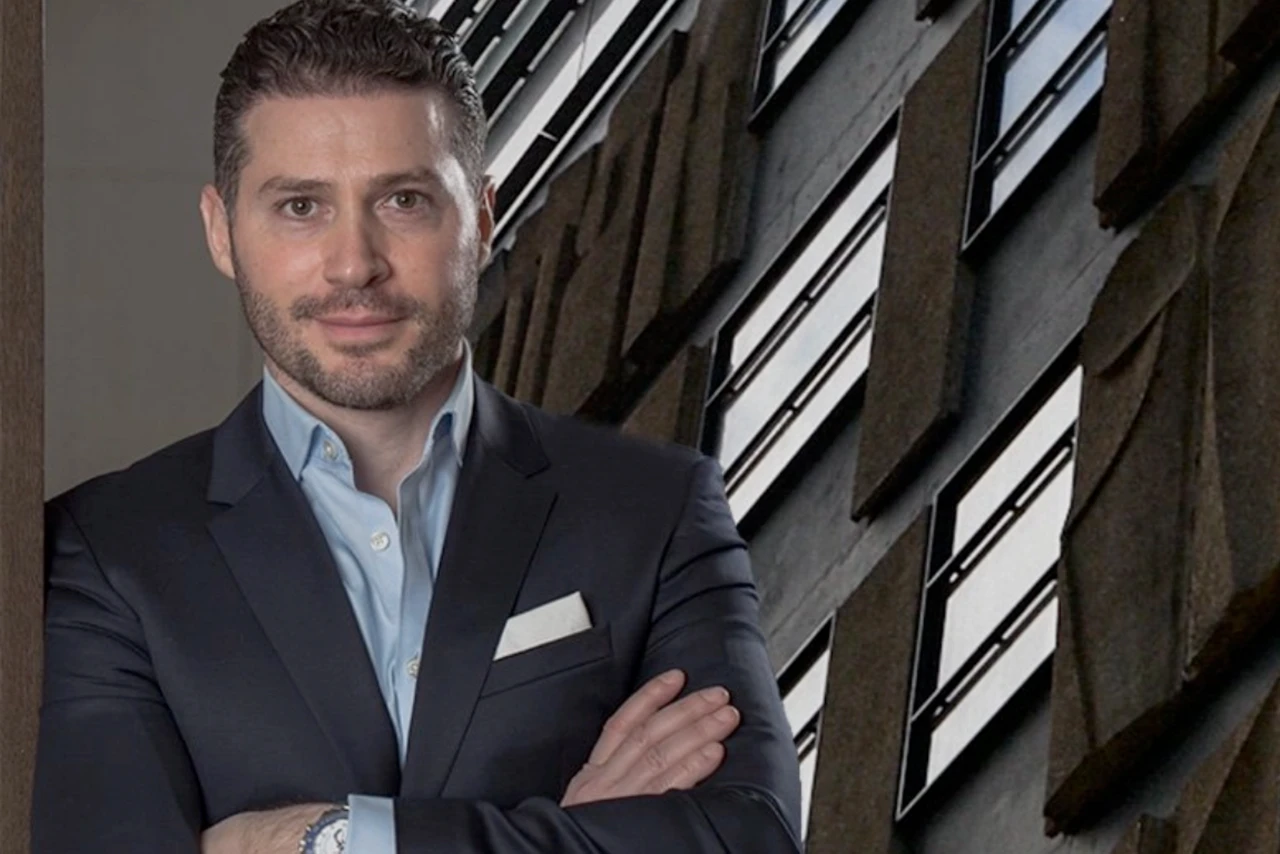Fintech founder Ozan Ozerk expands global banking from London to Istanbul
 Ozan Ozerk, founder of OpenPayd and European Merchant Bank, has emerged as a key figure in global fintech, linking ventures across London, Lithuania, and Türkiye. (Photo via official page)
Ozan Ozerk, founder of OpenPayd and European Merchant Bank, has emerged as a key figure in global fintech, linking ventures across London, Lithuania, and Türkiye. (Photo via official page)
Turkish entrepreneur Dr. Ozan Ozerk has emerged as a key player in global finance, founding fintech and banking institutions across Europe while promoting Türkiye as a rising fintech hub.
Who is Turkish enterpreneur Ozan Ozerk?
Ozerk, who previously worked as a medical doctor for five years, is now the founder of London-based OpenPayd, Lithuania-based European Merchant Bank (EMBank), and Türkiye-based Ozan Elektronik Para (Ozan.com).
OpenPayd, launched after his career in medicine, has grown into a major global payments and banking-as-a-service platform.
- The company currently manages a yearly payment volume of $108 billion and holds around 60 financial licenses worldwide
- It operates across more than 100 countries, with offices in the UK, US, Netherlands, and Singapore
In 2018, Ozerk expanded into traditional banking by founding EMBank in Lithuania, now one of the country’s leading digital banks. In the same year, he also launched Ozan Elektronik Para in Türkiye, which received its license from Türkiye’s Banking Regulation and Supervision Agency (BDDK) and began operations in 2020.
Speaking to Dunya newspaper, Ozerk described Türkiye as a natural bridge between Europe, the Middle East, and Asia for fintech companies. He said Türkiye’s growing fintech sector has outpaced many developed countries, especially in payment solutions.
He also stressed Türkiye’s widespread use of mobile and online banking, calling the digital banking experience more user-friendly and widespread than in many advanced economies.
Fintech in Türkiye is experiencing a major breakthrough, especially in payment solutions. Even in developed countries, such widespread and user-friendly digital banking solutions are not common.
Ozan Ozerk explained

Türkiye’s advanced financial infrastructure compared to many EU nations
In an interview with Anadolu Agency, Ozan Ozerk emphasized the strength of Türkiye’s banking system, calling it a “sleeping giant.” He stated that the country’s financial infrastructure is more advanced than that of many European nations and is comparable to that of Japan and South Korea.
In terms of financial infrastructure, Türkiye is on par with Japan and South Korea. No European country has a financial infrastructure as advanced as Türkiye’s.
Ozan Ozerk said
Türkiye has more than 90 million active online banking customers and over 100 million credit cards in circulation. It also ranks ninth globally in credit card transactions and seventh in ownership. These figures, according to Ozan Ozerk, reflect a strong foundation for further fintech innovation and inclusion.
He pointed out that fintech companies and e-money institutions in Türkiye are addressing areas that traditional banks avoid due to risk concerns, such as serving refugees and high-risk sectors. However, he cautioned that when traditional banks own e-money institutions, it can blur regulatory boundaries and create unfair competition.

Ozan Ozerk believes Türkiye holds immense global fintech potential
Ozerk believes Türkiye has the potential to become a major player in global fintech, but challenges remain. He said Turkish fintech companies often struggle with international expansion due to weak investment strategies and insufficient talent acquisition.
Despite having superior technology and expertise, many Turkish fintech companies fail to adopt the right strategies when expanding into international markets.
Ozan Ozerk told Anadolu Agency
He stressed the need for Turkish companies to secure stronger investments, attract skilled professionals, and develop clear strategies for international growth. Without these, he warned, the sector may not fully reach its potential.
Despite existing regulatory challenges, such as outdated financial laws and a previously unregulated cryptocurrency market, Ozerk remains optimistic. Ozan Ozerk believes Türkiye’s geographical location and digital infrastructure provide a strong base for fintech companies to reach markets across Europe and Asia.
“Türkiye and the EU are key trade partners. Improving ties could bring new opportunities for Turkish banks and fintech companies,” Ozerk told Dunya. “Türkiye can serve as a bridge for EU-based fintechs to expand into Asia and the Middle East, and vice versa.”

Blockchain’s impact on foreign exchange markets, future of finance
Ozan Ozerk is also vocal about the role blockchain could play in transforming foreign exchange (FX) markets.
In a Forbes article, he explained that the current FX settlement system is outdated, with many transactions still taking up to two days to clear. Blockchain, he said, could make settlements nearly instantaneous using stablecoins.
A model known as the “stablecoin sandwich” would allow currencies to be converted into stablecoins, transferred over a blockchain, and then converted back into the recipient’s local currency. This would remove the need for multiple intermediary banks and reduce transaction costs and delays.
“This is a massive operational win,” said Lux Thiagarajah, a former JP Morgan FX trader now working at OpenPayd. “Settling FX trades instantly could transform how institutional investors manage risk and liquidity.”
While the benefits are clear, Ozerk warned that regulatory uncertainties, lack of industry consensus, and trust issues still stand in the way. He pointed to the collapse of TerraUSD in 2022 as an example of the risks tied to stablecoins. He also noted concerns about financial stability and money-printing if governments enter the stablecoin space without oversight.
Still, Ozerk believes blockchain’s impact is no longer theoretical. Whether through stablecoins, tokenized assets, or central bank digital currencies, he argues that change is already underway.
“The FX revolution is happening” he wrote in Forbes. “Blockchain has the power to simplify the world’s most complex and outdated financial systems.”



